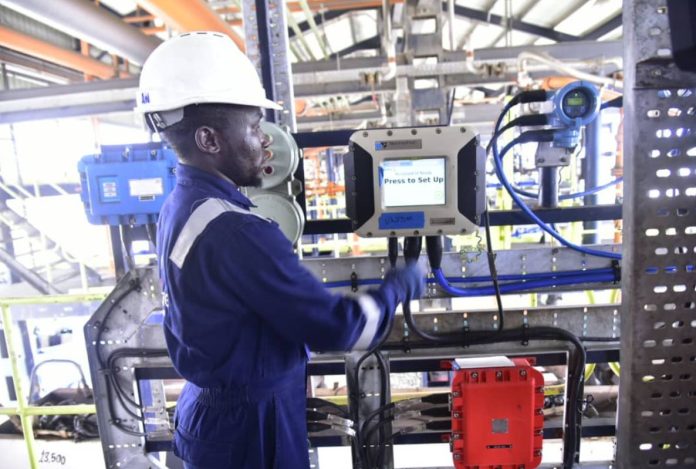The Nigerian National Petroleum Company Limited (NNPC) has embarked on a significant expansion of Compressed Natural Gas (CNG) stations across the country, acquiring equipment for 40 new stations.
This move aligns with the Federal Government’s broader plan to establish 100 CNG stations within the next six months, marking a key step in transitioning to cleaner and more affordable energy alternatives.
Oluwagbemi Michael, Programme Director and Chief Executive Officer of the Presidential Compressed Natural Gas Initiative (PCNGI), revealed the plans during an event in Ogun State.
He noted that in the past year, NNPC has successfully established 12 CNG centres, with six each in Abuja and Lagos.
This announcement follows concerns from Nigerians about the limited number of CNG stations, which has slowed the adoption of CNG as a viable alternative to petrol.
However, Oluwagbemi reassured the public that the government, in collaboration with the Midstream and Downstream Gas Infrastructure Fund, is actively addressing the issue.
“Two weeks ago, about N122bn was released to six private organisations investing in the CNG distribution value chain,” Oluwagbemi stated, emphasising the government’s commitment to ensuring widespread CNG distribution infrastructure.
He acknowledged that infrastructure development requires careful planning, including design, procurement, and installation processes, but highlighted that progress is already underway. NNPC’s acquisition of additional equipment for 40 sites across Nigeria is a key milestone in this effort.
Private companies are also playing a crucial role in the expansion, with organisations like Bovas, NIPCO, Matrix, and MRS investing heavily in CNG infrastructure. Oluwagbemi expressed optimism, predicting a doubling of refuelling stations to 100 within the next six months.
In a bid to further boost CNG adoption, the Federal Government is distributing one million CNG conversion kits to commercial drivers, which is expected to generate up to 1.5 million additional CNG demands. A credit scheme has also been introduced to help private vehicle owners convert their petrol-powered cars to CNG, allowing them to repay the cost gradually.
Addressing concerns about the potential upgrade of existing petrol stations, Oluwagbemi confirmed that NNPC is working on 40 additional CNG stations, expected to be operational by next year. He added that the private sector’s involvement is essential for long-term success, as companies must see the business potential to drive investment.
With a focus on both infrastructure and investor engagement, Oluwagbemi assured Nigerians that CNG would soon be available across the country, offering a safer and cheaper alternative to petrol.













